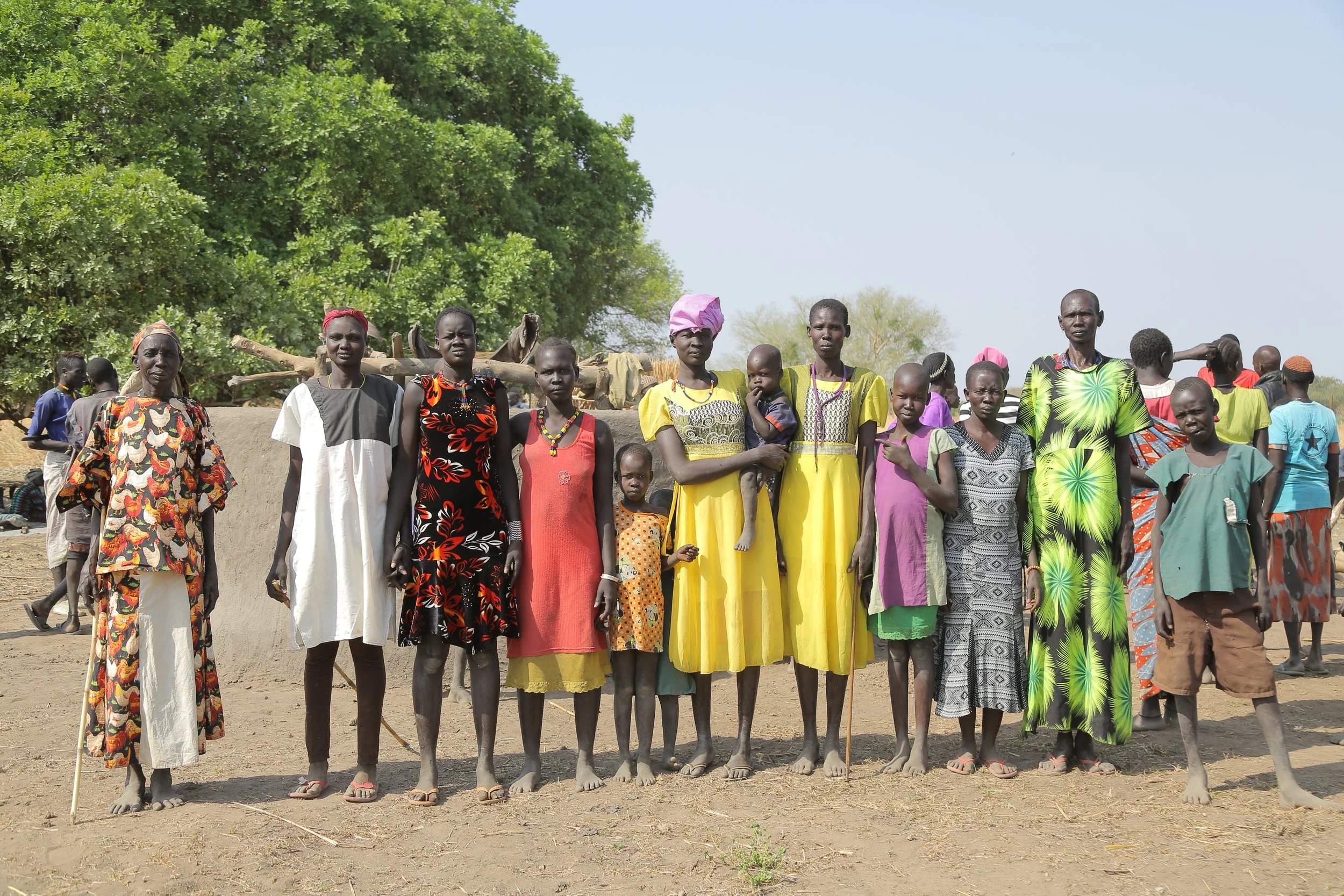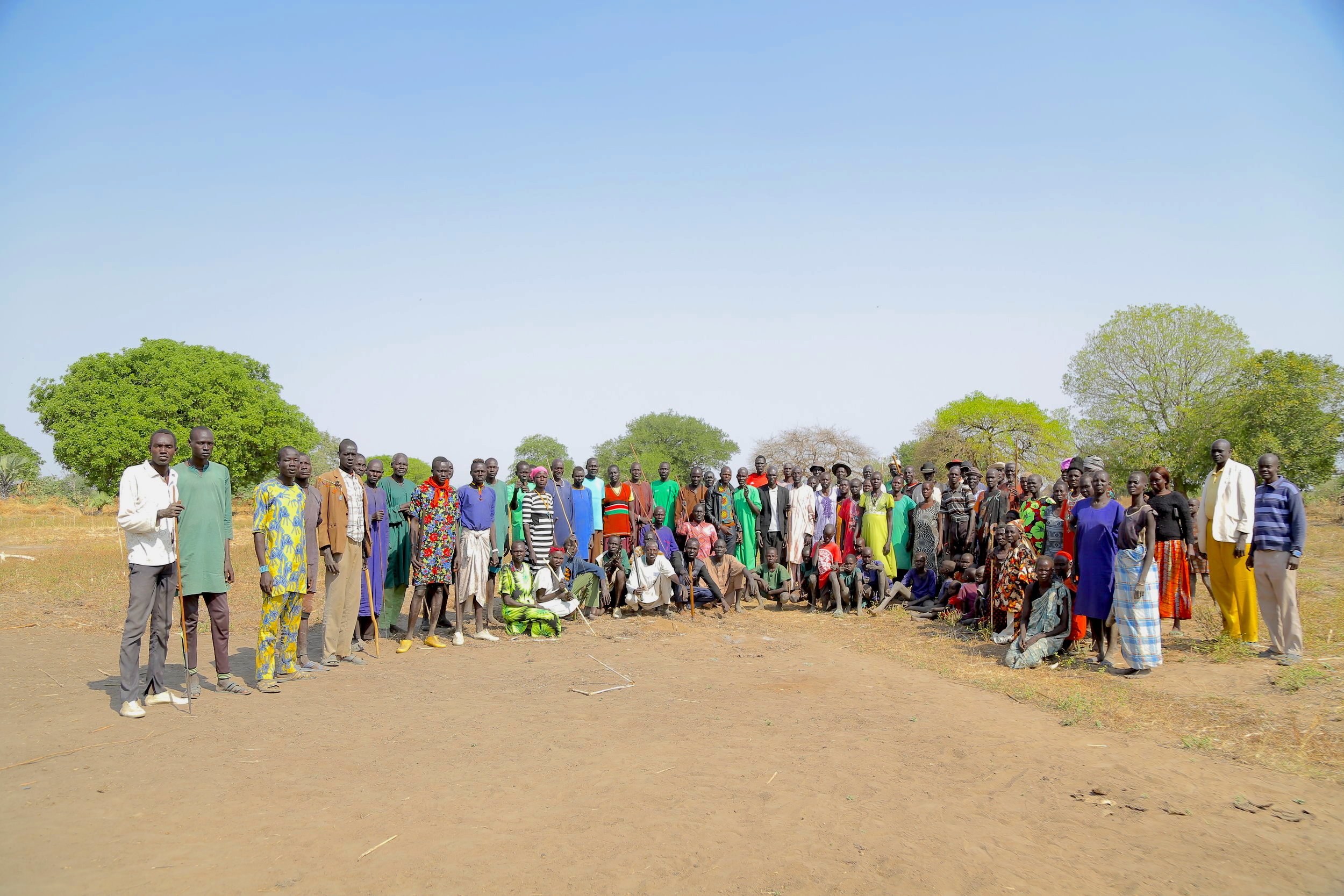Water Solutions for People & Crops in Tonj, South Sudan
Lack of access to water in South Sudan is a cause and consequence of war which continues to worsen the humanitarian situation. South Sudan lacks water infrastructure and the few available water points are a constant source of intertribal conflicts. Most solutions to the water crisis in South Sudan focus on drinking water. While this is vital, water for farming and livestock is equally life-saving, given that 95% of the population depends on farming and livestock rearing. Increasing droughts and flooding combined with instability leading to lack of infrastructure and sustainable management drives water insecurity, which adversely impacts the environmental, economic and social wellbeing of South Sudan and its people.
We are developing integrated and community-driven solutions to these challenges. Through solar-powered water pumps and irrigation systems, we ensure that community members in remote areas have access to safe, clean water for drinking and household use, while supplying water for farmland irrigation and feeding of local livestock. Our innovation seeks to create locally-driven water security and enable year round food production.
solar-powered water system model
IMPLEMENTATION PROCESS
Improving access to clean water through solar-powered water systems
Young boy stands by Rainmaker water collection taps
Water system with solar panels fastened atop water storage tanks
Two young girls depart from Rainmaker’s water collection point
We partner with local/regional suppliers and installation companies to build a community-based solar-powered groundwater system fitted with water collection taps and livestock watering areas in the community of Thiet, near Tonj, in South Sudan. The system supplies over 3,000 people with access to clean, safe water. A local water management committee works with our field team to manage water distribution and use. Our local team receives training on system maintenance and repair, and works to share this knowledge with local youth.
Impacts: saves lives, avoids water-borne diseases, improves community health, saves time to allow for girls to go to school, avoids use of diesel-powered generators through solar
Boosting local food production
Project Officer, Mathok, displays the height of the 2020 sorghum crop
Harvesting sorghum crop despite challenges with flooding
Youth receive training on water system repair on farm site
Connected to the water system at our project site is an 18-acre demonstration farm, which is managed by our local team and provides employment and learning opportunities to community members. We are proud to have installed a drip irrigation system on the field to allow for dry season farming - a new possibility for the community, and one which aims to reduce extreme food insecurity. To date, the farm has been in sorghum production, a drought- and flood-resilient staple crop in the region. We have also planted fruit trees across the farm and plan to introduce high-value vegetable crops during the coming season.
Impacts: improves food security and nutrition, allows for year-round food production, improves sustainability of food production and water management, creates jobs & provides opportunities for youth at risk of being recruited as child soldiers, fosters peace and development
Smallholder farmer training and support
Local farmers stand in front of drip irrigation system
Farmers & community members of Tonj
Smallholder farmer training; Rainmaker tractor displayed
Using lessons learned on our demonstration farm, we are working in partnership with the World Food Programme (WFP) South Sudan to engage with local smallholder farmers on climate-resilient farming methods (eg. soil health management, crop selection and rotation, etc) to mitigate, adapt and build resilience to the impacts of climate change, including flooding and drought. We are also working with these farmers to provide access to tractor-for-hire services.
Impacts: increases yields, strengthens livelihoods and increases knowledge of sustainable farming techniques, improves resilience to the impacts of climate change, strengthens local market activity
Our Community: Tonj, South Sudan
Welcome to our community. Our first project is located between the two constituencies of Alorweng and Angol in Tonj region, northwestern South Sudan. Agriculture and pastoralism are the two major means of livelihood in this region, with the majority of the communities engaging in subsistence farming and the rearing of livestock, particularly cattle. In Tonj, lack of sustainable access to resources is a primary cause of hunger, poverty, intercommunal conflict and environmental degradation. Our founder hails from Tonj region, providing significant advantage - through intimate local knowledge - in South Sudan’s challenging operational context.
Community co-design process:
South Sudan Background
As the world’s youngest country, South Sudan is a country of immense challenges - and opportunities. South Sudan achieved independence in July 2011 following its secession from Sudan after decades of deadly civil war. War broke out again in 2013, pushing the country into a humanitarian crisis and leaving water systems neglected or destroyed. Lack of access to water is driving extreme hunger, poverty, protracted conflict and environmental degradation, and is exacerbating gender inequality and increasing the vulnerability of women and girls. The country is among the world’s most vulnerable to climate change and among the least equipped to fight back. Lasting peace requires a revival of the country’s agricultural sector, which begins with access to water. By harnessing local resources, we aim to support communities on the road to recovery, lasting peace and prosperity.
Stand With Tonj Today


















